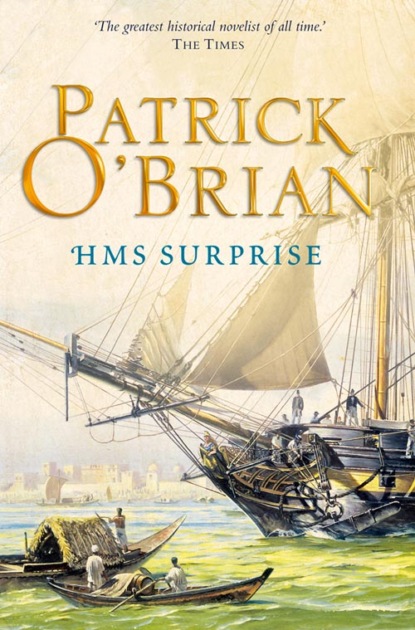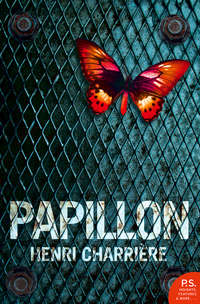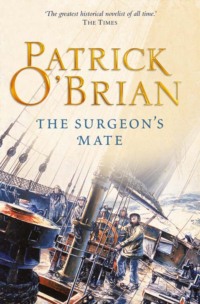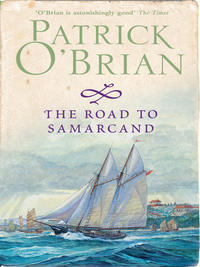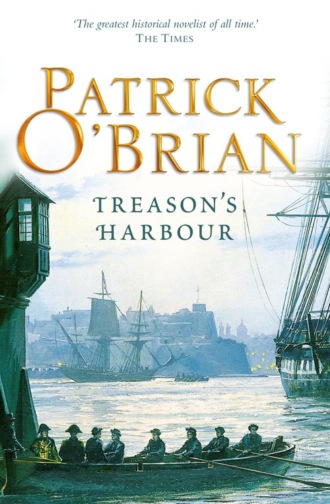
Полная версия
Treason’s Harbour
‘I am delighted to see you, Captain Pullings,’ said Wray, holding out his hand, ‘and I congratulate you with all my heart on your share in the Surprise’s brilliant victory. As soon as I read Captain Aubrey’s dispatch’ – bowing to Jack – ‘and his glowing account of your unparalleled exertions I said Mr Pullings must be promoted. There were gentlemen who objected that the Torgud was not in the Sultan’s service at the moment of her capture – that the promotion would be irregular – that it would establish an undesirable precedent. But I insisted that we should attend to Captain Aubrey’s recommendation, and I may tell you privately,’ he added in a lower tone, smiling placidly at Jack as he did so, ‘that I insisted all the more strongly, because at one time Captain Aubrey seemed to do me an injustice, and by promoting his lieutenant I could, as the sea-phrase goes, the better wipe his eye. Few things have given me greater pleasure than bringing out the commission, and I am only sorry that the victory should have cost you such a cruel wound.’
‘Mr Wray: Colonel Manners of the Forty-Third,’ said Sir Hildebrand, who felt that this had been going on far too long.
Jack and Pullings bowed and gave place to the Colonel: Jack heard the Governor say ‘That was Aubrey, who took Marga,’ and the soldier’s almost instant keen reply ‘Ah? It was held by the enemy, I recollect?’ but his mind was deeply perturbed. Was it possible that he had misjudged Wray? Could any man have such boundless impudence to speak so if it were false? Wray could certainly have barred the promotion if he had wished; there was the perfect excuse of the Torgud’s being a rebel. Jack tried to recall the exact details of that far-away unhappy, angry evening in Portsmouth – just what was the sequence of events? – just how much had he drunk? – who were the other civilians at the table? – but he had been through a great deal of much more open violence since that time and he could no longer fix the grounds of his then certainty. Cheating there had been, and for large sums of money, of that he was still sure; but there had been several players at the table, not only Andrew Wray.
He became aware that Pullings had been talking about the Second Secretary in a tone approaching enthusiasm for some time – ‘such magnanimity, magnanimity, you know what I mean, sir – benevolent eye – uncommon learned too, no sort of doubt about it – should certainly be First Secretary if not First Lord’ – and that they were standing at a table covered with bottles, decanters and glasses.
‘So here’s to his health, sir, in admiral’s flip,’ cried Pullings, putting an ice-cold silver tankard into his hand.
‘Admiral’s flip, at this time of day?’ said Jack, looking thoughtfully at Captain Pullings’ round, happy face, with its livid wound now glowing purple – the face of one who had already swallowed a pint of marsala and who was in any case quite overcome with joy – the face of an ordinarily abstemious man who was now in no state to drink champagne mixed with brandy half and half. ‘Would not a glass of pale ale do as well? Capital stuff, this East India pale ale.’
‘Come, sir,’ said Pullings reproachfully. ‘It’s not every day I wet the swab.’
‘Very true,’ said Jack, remembering the time he first put on a commander’s epaulette – only one in those days – and his unbounded delight. ‘Very true. To Mr Secretary’s very good health, then. May he prosper in all his designs.’
The admiral’s flip did for poor Pullings even sooner than might have been expected. They were separated by a tide of thirsty officers, many of whom wished Pullings joy of his promotion, and Jack had not been talking to his old friend Dundas for five minutes before he saw two of them leading, almost carrying, Pullings away. He followed and found that they had put him on a seat in a quiet corner of the garden, where he was very nearly asleep, pale, but smiling still. ‘You are all right, Tom, are you not?’ he asked.
‘Oh yes, sir,’ said Pullings from a great distance. ‘It was only a little close in there. Like the hold of a slave-ship.’ He added that he was thinking of Mrs Pullings, of Mrs Captain Pullings, and what she would say to an income of sixteen guineas a month. Sixteen beautiful guineas a lunar month!
‘What she will say to your poor phiz is more to the point,’ said Jack to himself, contemplating the now mute, insensible commander. A very ugly wound indeed: he had rarely seen an uglier. Yet Stephen Maturin assured him that the great gash would heal and that the eye was in no danger; and in medical matters he had never known Stephen go far wrong. A bell struck within his mind, a warning-bell for his appointment. He said, ‘Mrs Fielding, pretty thing,’ and returning to the palace he walked fast through the crowd to the fore-court and there called ‘Surprise’. The cry was at once taken up by the various seamen and Marines there present and within seconds his coxswain appeared, wiping his mouth – a rather splendid coxswain, for on these occasions any ship worth her copper liked her captain, his barge, and those that belonged to it, to do her credit, and Bonden had come out in a tall round hat with Surprise on it, a light-blue coat with a velvet collar, satin breeches and silver-buckled shoes, the whole (apart from the shoes, which had been taken from a dead renegado) the work of his own and his friends’ needles. ‘Bonden,’ said Jack, ‘Mr – Captain Pullings is taken a little poorly.’
‘Paralytic, sir?’ asked Bonden in a spirit of pure enquiry: no moral or even aesthetic question arose.
‘Not as who should say paralytic,’ said Jack: but this was at once understood as decent form, no more, and Bonden said that he would borrow a stretcher from the pile always ready in the guard-room when the Governor gave a party, rouse out a couple of strong, reliable bargemen for the fore-end, and cut round to the garden-gate, for to avoid scandal, sir, and letting the redcoats laugh.
‘Make it so, Bonden, make it so: the garden-gate in five minutes,’ said Jack. Ten minutes later he was half way down the ladder-like street that led to his hotel, walking beside the stretcher borne shoulder-high in front by two of the frigate’s bargemen and at knee-level by the powerful coxswain behind, so that it was tolerably straight: the commander himself was lashed in with the traditional seven turns, like a hammock. The scandal of a naval officer disguised in drink no longer seemed to affect any of the party now that the palace redcoats were out of sight, and Jack’s only care was to preserve his hat. The houses on either side had covered, closed-in balconies, and every twenty yards or so, where the slope of the street brought the balcony conveniently low, a hand from behind the shutters would make a dart at his head, accompanied by a laugh, silvery or beery as the case might be, and an invitation to step within. Officers as imposing as post-captains were rarely treated so, at least in daylight, but this was the feast of St Simeon Stylites, and a great deal of licence was tolerated; in any case Jack’s hat (which, out of love for Lord Nelson and a liking for the ways of his youth, he wore athwartships rather than fore and aft) had been snatched at in countless ports since before he needed to shave, and he was fairly good at preserving it.
He preserved it now, and reaching the court of the hotel he hailed his steward, who could be seen on the roof, staring in the wrong direction. ‘The roof, there. Lend a fist, Killick: bear a hand, now.’
Killick came running down. ‘There you are at last, sir,’ he cried, clapping on to the stretcher in an absent-minded way, his eyes fixed on Jack’s hat. ‘Which I been looking out for you this last bleeding watch and more.’ Killick was an unimproved foremast-hand, rougher than most, impervious to what civilizing influence the cabin might exert and deeply, obstinately ignorant, self-opinionated, and ill-informed. But he did know that ‘a diamond the size of a pea was worth a king’s ransom’, and he did know that the chelengk was made of diamonds because he had privately written Preserved Killick HMS Surprise none so Pretty on a window-panel with it. The two topmost stones were certainly as big as the dried naval peas he had eaten all his life – the green kind he had never seen – and he was persuaded that the chelengk ranked with the crown jewels: or even higher, since not one of the crown jewels had clockwork in it. Ever since the present had arrived from Constantinople his life had been one long anxiety, particularly as they were now ashore, with thieves at every hand; he hid the object in a different place every night, usually wrapping its outer case in sailcloth and covering that with filthy rags, the whole nestling among concealed fish-hooks and rat-traps set to go off at a sneeze.
He and Bonden put Pullings tenderly to bed in a neat, seamanlike fashion, and Jack, looking at his watch, realized that if he were not to be late for Mrs Fielding’s rehearsal he would have to step out; he also realized that he had not sent his violin round earlier in the day, a foolish oversight in a town where all officers wore uniform, and could not be seen carrying so much as a packet themselves, let alone a musical instrument. ‘Bonden,’ he said, ‘jump to the Doctor’s parlour, take my fiddle-case from the window-seat, and come along to Mrs Fielding’s with me. I am going directly.’
Bonden made no reply, only twisting his head to one side, looking dogged, and pretending to be busy with the string of Captain Pullings’ nightcap; but Killick plucked Jack’s hat from the bedside table with such force that the chelengk quivered again and said, ‘Not in that scraper you ain’t.’ The diamonds were of course his first consideration, but there was also the hat itself, Captain Aubrey’s best gold-laced hat, and Killick hated to see good uniforms worn to skin and bone, rack and ruin; or indeed worn at all. And although he was an open-handed creature himself (none more prodigal than Preserved Killick when ashore with a hat-full of prize-money) he disliked seeing Captain Aubrey’s victuals or wine eaten or drunk by anyone but admirals or lords or very good friends; and he had been known to give junior officers and midshipmen the mixed leavings of yesterday’s bottles. Now he came back with a little mean shrunken threadbare hat that had seen cruel hard service in the Channel. ‘Oh well, damn the scraper,’ said Jack, reflecting that the chelengk would be horribly out of place at the rehearsal. ‘Bonden, what are you at?’
‘I shall have to shift my togs first,’ said Bonden, looking away.
‘Which he means was he to carry a fiddle the redcoats might call out Give us a tune, sailor,’ said Killick. ‘You wouldn’t like that, your honour, not with Surprise on the ribbon of his hat. No. What you would like is for me to call a blackguard boy to carry it; and Bonden will go along and keep an eye on him, as in duty bound.’
It was all hellfire nonsense, began Captain Aubrey, and they were a couple of God-damned swabs; but then reflecting that they had followed him many a time on to the deck of an enemy man-of-war, when there was no question of carrying fiddle-cases or being laughed at, he said there was no time to be lost – they might do as they chose – but if that fiddle were not at Mrs Fielding’s within five minutes of his own arrival, they might look out for another ship.
In fact the fiddle was there before him. Bonden’s little barefoot boy knew every short cut and they were waiting at the big double doors giving on to the street when Jack came hurrying down through an adverse tide of black-cowled women, men of half a dozen nations, some scented, and goats. ‘Well done,’ he said, giving the boy a shilling. ‘I shall be just in time. Bonden, you may cut along: I shall want my gig at six in the morning.’ He took his fiddle and hurried down the long stone passage that pierced the building from front to back, leading to the little garden house where Laura Fielding lived; but when he reached the door that opened on to this inner court he found that his haste had been quite unnecessary – there was no answer to his knock. He waited a decent interval, then pushed the door; and as it opened he caught a great heady waft from her lemon-tree. It was an enormous tree, certainly as old as Valletta, if not older, and it had some flowers all the year round. Jack sat on the low surrounding wall, rather like a well-head, and gasped for a while; the bed had had its enormous quarterly watering that very day, and the damp earth gave out a grateful freshness.
He had quite recovered his good humour during his walk – it rarely deserted him for long – and now, opening his coat and taking off his hat, he contemplated the lemons in the gathering twilight with the utmost satisfaction, the cool air wafting about him. He had stopped puffing and he was about to take his fiddle out of its case when he took notice of a sound that had been vaguely present for some time but that now seemed to increase – a desperate unearthly wailing, fairly regular.
‘It is scarcely human,’ he said, cocking his ear and trying to think of possible origins – a windmill turning with no tallow on its shaft, a lathe of some kind, a man run melancholy-mad and shut up behind the wall on the left. ‘Yet sound is the strangest thing for reverberation,’ he reflected, standing up. Beyond the lemon-tree there stood the little house, and from its right-hand corner ran an elegant flight of arches, screening another courtyard at an angle to the first: he walked through, and at once the sound grew very much louder – it was coming from a broad, deep cistern sunk in the corner to receive rain-water from the roofs.
‘God help us,’ said Jack, running towards it with a vague but very horrible notion of the maniac’s having flung himself in out of despair. And when he leant over the edge of the dark water some four or five feet below, the notion seemed to be confirmed – a dim hairy form was swimming there, straining up its huge lamentable head and uttering a hoarse wow wow wow of extraordinary volume. Another glance, however, showed him that it was Ponto.
The cistern had been more than half emptied to water the lemon-tree (buckets stood by it still): the wretched dog, impelled by some unknown inquisitiveness and betrayed by some unknown blunder, had fallen in. There was still enough water for him to be out of his depth but enough had been taken to make it impossible for him to reach the rim and heave himself out. He had been in the water a great while, and all round the walls there were the bloody marks of his paws where he had tried to scrabble up. He looked quite mad with terror and despair and at first he took no notice of Jack at all, howling on and on without a pause.
‘If he is out of his wits he will have my hand off, maybe,’ said Jack, having spoken to the dog with no effect. ‘I must get hold of his collar: a damned long lean.’ He took off his coat and sword and reached down, far down, but not far enough although he felt his breeches complain. He straightened, took off his waistcoat, loosened his neckcloth and the band of his breeches and leant over again, down into the dimness and the howling that filled the air. This time his hand just touched the water: he saw the dog surge across, called out, ‘Hey there, Ponto, give us your scruff,’ and poised his hand to seize the collar. To his vexation the animal merely swam heavily to the other side, where it tried to climb the hopeless wall with its flayed, clawless paws, howling steadily.
‘Oh you God-damned fool,’ he cried. ‘You silly calf-headed bitch. Give us your scruff: bear a hand now, you infernal bugger.’
The familiar naval sounds, uttered very loud and echoing in the cistern, pierced through the dog’s distress, bringing sense and comfort. He swam over: Jack’s hand brushed the hairy head, whipped down to the collar, the damned awkward spiked collar, and took what grip it could. ‘Hold fast,’ he said, slipping his fingers farther under. ‘Stand by.’ He drew breath, and with his left hand gripping the cistern-rim and his right hooked under the collar, the two as far apart as they could be, he heaved. He had the dog half way out of the water – a very great weight with such a poor grip, but just possible – when the edge of the cistern gave way and he fell bodily in. Two thoughts flashed into his plunging mind: ‘There go my breeches’ and ‘I must keep clear of his jaws’, and then he was standing on the bottom of the cistern with the water up to his chest and the dog round his neck, its forelegs gripping him in an almost human embrace and its strangled breath in his ear. Strangled, but not demented: Ponto had clearly recovered what wits he possessed. Jack let go the collar, turned the dog about, grasped his middle, and crying ‘Away aloft’ thrust him up towards the rim. Ponto got his paws on to it, then his chin; Jack gave his rump one last powerful heave and he was gone: the mouth of the cistern overhead was empty, but for the pale sky and three stars.
Конец ознакомительного фрагмента.
Текст предоставлен ООО «ЛитРес».
Прочитайте эту книгу целиком, купив полную легальную версию на ЛитРес.
Безопасно оплатить книгу можно банковской картой Visa, MasterCard, Maestro, со счета мобильного телефона, с платежного терминала, в салоне МТС или Связной, через PayPal, WebMoney, Яндекс.Деньги, QIWI Кошелек, бонусными картами или другим удобным Вам способом.


